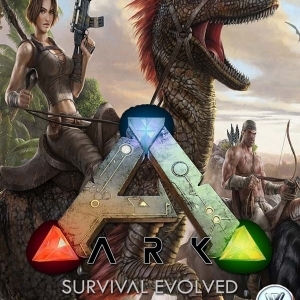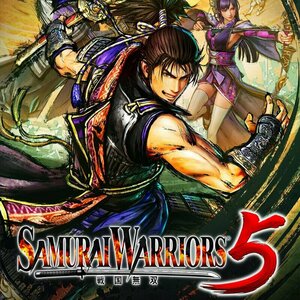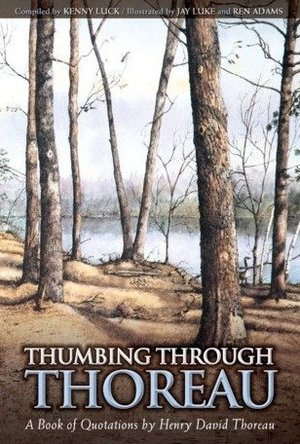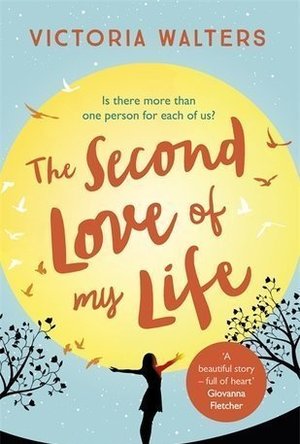
ARK Survival Evolved
Video Game
Stranded on the shores of a mysterious island, you must learn to survive. Use your cunning to kill...

Survivalcraft
Games and Entertainment
App
You are marooned on the shores of an infinite blocky world. Explore, mine resources, craft tools and...

Connie math educational game 2nd grade
Education and Games
App
Connie Fun Learning: Everything for second grade: Math. Developed with pedagogical support. ...

Animation & Drawing by Do Ink
Education and Entertainment
App
*** Featured – App Store Essentials: Painting & Drawing *** *** Featured – App Store: Middle...
Charlie Cobra Reviews (1840 KP) rated the PlayStation 4 version of Samurai Warriors 5 in Video Games
Sep 14, 2021 (Updated Sep 14, 2021)
Play as the legends of the Sengoku Era of Japanese history in this epic "Warriors" game. Samurai Warriors 5 has been revamped with a new art style and an all new weapon system allowing characters to utilize any weapon in a large arsenal as you mow down hundreds of soldiers from opposing armies. Every weapon has special moves to use in combat and can be upgraded in the blacksmith menu. Characters have a simplistic skill tree and some also have ultimate moves. A stable menu is available to upgrade and train horses you acquire as well. There are two game modes: Musou Mode, which is a mission based story mode and Citadel Mode, which is an extra game mode in which you defend a base while completing different objectives to get the highest score you can.
Utilizing new character designs and a new art style based on Japanese paintings, Samurai Warriors has never looked so good. Musou attacks look great with some ending in a character posing for a painting. Character animations are great in battle but a little stiff in scenes with dialogue, however, the cutscenes are well done.
Battle music can get repetitive but if you love the "Warriors" series it's what you've come to expect. Classic "Warriors" style music with epic rock/metal guitar riffs are mixed with the traditional Japanese style music, although with more emphasis on the latter. Overall the music is very enjoyable. The sound design for weapon combos gives you a good sense of impact too and really makes you feel like you're doing damage.
Samurai Warriors 5 is the tale of Nobunaga Oda, the legendary Japanese Daimyo (Lord) on his quest to unify all the lands of Japan and bring peace to it's people. This game is based off of historical records of Nobunaga's life and that of Mitsuhide Akechi with many liberties taken to romanticize real life historical accounts. The plot follows them through their lives, up to the incident at Honno-ji.
Verdict: [7/10]
A fantastic return to form for the "Warriors" series after the abysmal Dynasty Warriors 9. The new art style is a refreshing take and gameplay innovates while simultaneously not alienating lovers of past games in the series.
Acanthea Grimscythe (300 KP) rated Siren of Depravity in Books
May 16, 2018
Written in first person perspective, Siren of Depravity is narrated by the main character, Harry Keyes. Harry is anything but the perfect husband: he's cheated on his wife and has a habit of lying to her. His pride and joy is his little girl, Eva. Harry also has a brother, Dexter, who just found out that he's actually adopted: they have different mothers.Coming from abusive childhoods, the two are haunted by their monster of a father. While Harry grew up, married, and found a career, Dexter bought the family house from his parents and became a bit of a recluse, burying himself in necromantic studies. The other characters, including Harry's wife and child, are largely minor characters until the end and, while most of them are fairly flat and static, Eva appears to be the only one that undergoes any sort of change.
Upon discovering the nature of his maternity, Dexter calls his brother up on the telephone for the first time in ages, divulging to Harry that he has discovered something that he absolutely must show him. Naturally, Harry casts aside all reason to travel two hours to visit his brother and learn what he has discovered, despite knowing how dark Dexter's interests are. It is at this point that Siren of Depravity starts hinting at old and terrible creatures that are inspired by Lovecraft, suggesting that they are buried deep underground. Dumbfounded by the knowledge that Dexter has a different mother, Harry takes it upon himself to solve the mystery and thus readers are led on a journey filled to the brim with horror after horror, from necromancy to human experimentation, Fry doesn't hold back on the grisly details that define the Keyes family's past.
Though the book begins a bit slowly, the action is nonstop and picks up speed further along. Fry has a knack for painting gruesome images with his words; however, I feel that his writing style would be better suited in third person, rather than first. Harry's perspective seems to be a bit heavily diluted by his own personal regrets, and the constant mention of his affair and of being swatted with a newspaper by his father throughout the book really takes away from many of the scenes. What bothered me more than how repetitive these moments were, was the constant beginning of a sentence with the word "but." "But" is a conjunction, and as such is meant to connect two thoughts. Many of the instances in which it was used, the word could have been omitted entirely, which would have helped the flow of the story. Instead, it gives the book a bit of a jerky feeling. Hopefully this will be addressed before publication.
I would like to thank NetGalley, DarkFuse, and Gary Fry for the advance review copy in exchange for an honest, unbiased review.
Rachel King (13 KP) rated Thumbing Through Thoreau: A Book of Quotations by Henry David Thoreau in Books
Feb 11, 2019
The book is divided into three sections that each of the quotes could be filed under: "Society & Government", "Spirituality & Nature", and "Love." The quotes that Kenny Luck compiled were indeed thought-provoking. When examining the collection as a whole, I could imagine the kind of man that wrote these words day in and day out. As Luck states: "This book... is my attempt to bring together the best pieces of Thoreau's writings in one collection." Before reading this book, I was not overly familiar with Thoreau's work, and afterwards I realized that the man Thoreau has much in common with my own husband. But I digress.
Some quotes were familiar, such as this one:
"The mass of men lead lives of quiet desperation."
Many more quotes were unfamiliar, but quite profound:
"I am convinced, that if all men were to live as simply as I then did, thieving and robbery would be unknown."
"What is it [to] be born free and equal, and not to live? What is the value of any political freedom, but as a means to moral freedom?"
"A written word is the choicest of relics."
"The day is an epitome of the year. The night is the winter, the morning and evening are the spring and fall, and the noon is the summer."
"I suspect that the child plucks its first flower awith an insight into its beauty and significance which the subsequent botanist never retains."
"To be married at least should be the one poetical act of a man's life."
"Love is a severe critic."
"The only way to speak the truth is to speak lovingly; only the lover's words are heard."
What I found especially distracting was how the words within each quote varied in font size and color, almost as if Luck did not trust the reader enough to know how to read the work and felt he had to dictate to the reader where the emphasis lay in each quote. While I can not say for sure if this was the aim, I felt like my intelligence was being belittled and undervalued as I flipped through the pages. Plus, these words are Thoreau's, not Kenny Luck's, and only Thoreau would be able to truly say where the emphasis within each sentence should be. Luck is only presuming to make intelligent guesses. While I respect Luck's obsession, which he describes in his introduction, I think he should allow for the words of Thoreau to stand alone, so that each reader can appreciate Thoreau through his or her own interpretation.
"The fact is I am a mystic, a transcendentalist, and a natural philosopher to boot."
Kristy H (1252 KP) rated Girls' Weekend in Books
Feb 13, 2018
When reading it, the premise seems a little farfetched, but the characters in this novel immediately seem very real and the book gives a lot of little details about motherhood that lend it realism (for instance, humming annoying intro music to a children's show at inappropriate times). Each woman is different, but you can relate to a piece of each of them. I found myself liking parts of each and being frustrated with other parts - just like your actual friends.
It's probably true that parts of the book are stereotypical toward men (and fathers) -- painting them as bumbling and clueless toward their wives and children, but sadly, there is some realism to it, too. Plus, as the storyline progresses, you fixate less on this fact and realize there's more to this story than black and white. Honestly, it speaks universally to many women, especially mothers: those seeking answers in life, those feeling guilty for not being happy when life seems perfect on paper, those wondering when life simply became a series of errands. I felt like Achterberg did an excellent job of dealing with and capturing some of the quintessential problems facing the modern mom.
The book is painful to read at times, but only because it's so well-written. Your heart breaks for Meg and all she has been through. The book lags a little in the middle, but really, the women do too, as they try to figure out exactly what they should do. It is fascinating because they are doing what you can't quite imagine pulling off. My mind was racing as I read: I mean, who would really watch your kids for that long? What spouse would be OK with this? Who could leave their kids for that long? And yet, you sort of dream for the time away, envy the women as you read the novel. It's easy to empathize with them, even as you may question some of their motives.
Overall, the book was easy to read and Charlotte, Meg, and Dani were interesting and relatable characters. The book made me think (and highlight many passages). It's a fun read, but also goes deeper, too. Really enjoyed it.
I received an ARC of this book from Netgalley (thank you!); it is available everywhere on 5/3.
Hazel (1853 KP) rated The Second Love of My Life in Books
Dec 17, 2018
Victoria Walters’ debut novel, <i>The Second Love of My Life</i>, is a must read for fans of women’s fiction. Set in a coastal village in Cornwall, Walters explores themes of love, grief and survival in this satisfying narrative.
Rose Walker was once known in her small village for being an up-and-coming artist, however now she is branded as the woman who was widowed at twenty four. The story begins two years after the tragic event involving a car collision between her husband, Lucas, and a drunk driver. Since then Rose has wallowed in her grief and not picked up a paintbrush; therefore the upcoming village fair will be the last time she ever sells her paintings.
A stranger, Robert Green, shocks both Rose and the community by purchasing all of her remaining artwork for an extortionate amount of money. Intrigued by this mysterious man, Rose begins to creep back out of her shell, exploring feelings she has not felt for quite some time. However, just as she believes she cold fall in love again, Robert reveals he is not the man she thought he was.
In a way there are two focuses of this novel. One is Rose’s love life and the other is her artwork. The former is obvious from the title alone. “<i>The Second Love of My Life</i>” suggests that the protagonist has been in love before, and falls in love again. There was a danger of this story becoming predictable: girl is heartbroken, girl meets man, girl falls in love, something bad happens, bad thing is resolved; however the inclusion of Rose’s (former) passion for art gives the book a unique streak.
Many artists will be able to relate to (even if they have never been brokenhearted) the feeling of being unable to produce work – a mental block. <i>The Second Love of My Life</i> reveals the trials Rose goes through in order to get her life back together by forcing herself through the barriers her mind has created in order to deal with her deeper emotions. Although it was Robert that inspired Rose to begin painting again, she does this mostly by herself, showing the reader that she is a strong, capable woman who does not need a man to save her – getting the man is an added bonus.
Whether because this is a first novel, or whether it is Walters’ writing style, there are times when it is difficult to tell what is speech and what is the main character’s internal monologue. Occasionally I found myself wondering whether the lack of speech marks was an editing error or intentional.
<i>The Second Love of My Life</i> has been likened to the works of Cecelia Ahern (author of <i>P.S. I Love You</i>), which is admittedly the reason I chose to read it. Whilst Walters’ writing is not quite up there with the popular authors, there is no doubt that one-day she will be. This is an impressive debut and definitely an author to look out for.
Chris Sawin (602 KP) rated Catfish (2010) in Movies
Jun 22, 2019 (Updated Jun 23, 2019)
If somebody made me choose a favorite film genre, psychological thriller would quite possibly be my answer. Films that include incredible twist endings (Oldboy) or have elaborate storylines that make you think (Inception) are definitely some of the best times to be had when it comes to an entertaining movie experience. Catfish was marketed as a film that was not only a thriller, but also contained "a shattering conclusion" that was compared to Alfred Hitchcock. In the end, it didn't really have either of those things.
Catfish had this vibe the entire film like it was leading towards something dark near its conclusion. As Nev makes his way to Michigan, you get more and more anxious as he nears his destination. Even the music gets really unsettling. Is Megan's family going to be a bunch of chainsaw wielding cannibals or have Angela and Vince been keeping a kidnapped girl named Megan chained in their basement for weeks to lead young, single guys out there for them to torture as some sort of twisted way to get off? No, it's nothing like that. Catfish never really became thrilling or even came near diving into dark territory.
What Catfish winds up being is an interesting character study presented as a documentary. The film's heart resides in who Megan really is and how the entire experience affects Nev. Once the pieces of the puzzle are put together and everything falls into place, Catfish turns out to be a very raw, emotional, and heartfelt film. What's intriguing is the film revolves around Facebook and with The Social Network hitting theaters in about two weeks, it seems like a bit of a bold move.
What is arguably the best scene in the film is when it's actually explained why Catfish was chosen as the title in the final minutes. It is a pretty incredible explanation and fits the film perfectly.
Catfish isn't necessarily a bad film, in fact, it's pretty powerful once it really gets going. It probably isn't what you're expecting though. While Catfish is laugh out loud at certain points in the film, at its core, it's a documented love story that mostly resides on the internet. Maybe it just comes from personal experience, the way the film was presented, or the on-screen presence of the characters in the film, but Catfish felt genuine which isn't something that can be said about many films that have come out in 2010.




